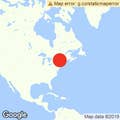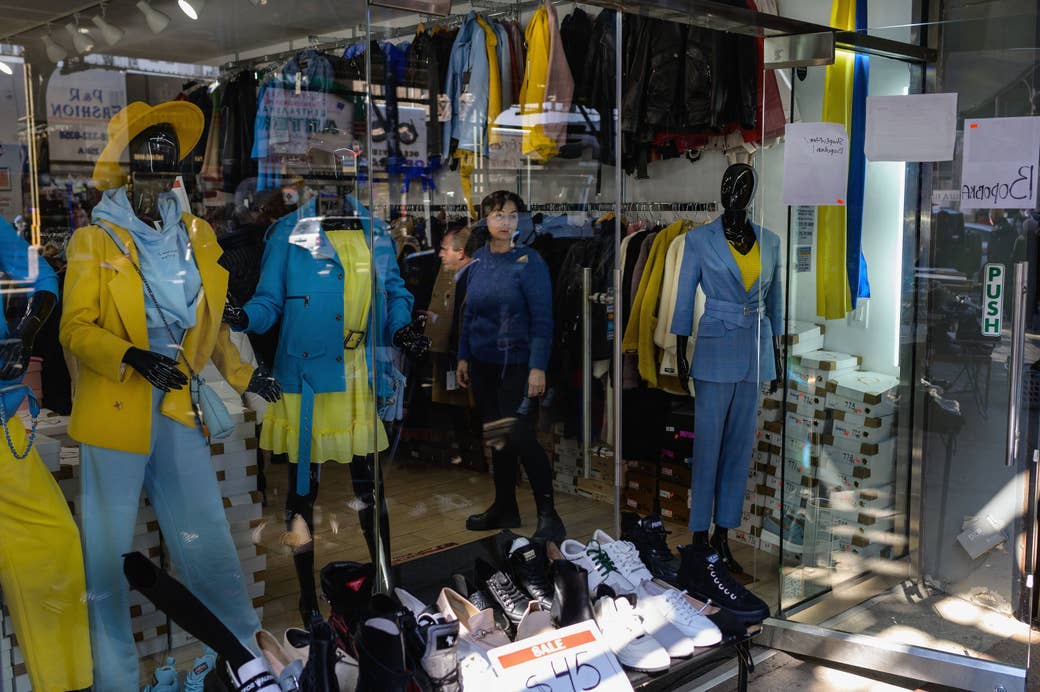
BROOKLYN — On Monday, Lidiia Olshand, a 59-year-old high school teacher from Ukraine, woke up at 4 a.m. in her daughter’s home in Brooklyn to teach her class in Kyiv remotely. There were only a handful of students left in the Ukrainian capital, and distant explosions could be heard over the classroom’s video call. Many of her other students, who had left their homes and schoolbooks behind, logged on from the places to which they’d escaped Russia’s deadly invasion.
Amid the chaos, confusion, and despair, Olshand has tried to maintain a sense of normalcy, distracting the teenagers from what they’re going through.
“When we connected today online, I had tears in my eyes, and the students had tears in their eyes,” Olshand said in Ukrainian to BuzzFeed News. “The kids grew up so quickly … in the last two weeks. [They] became more of an adult.”
Olshand has never missed Ukraine as much as she does now. She traveled to New York in early February to visit her daughter and had planned to return to her home in the Kyiv suburbs on Feb. 25.
But the day before her flight, her husband called to tell her that bombs had begun to fall as Russia launched its full-scale invasion of Ukraine. He then joined her in the US, where the two are now living indefinitely with their daughter in the Bensonhurst neighborhood of Brooklyn.
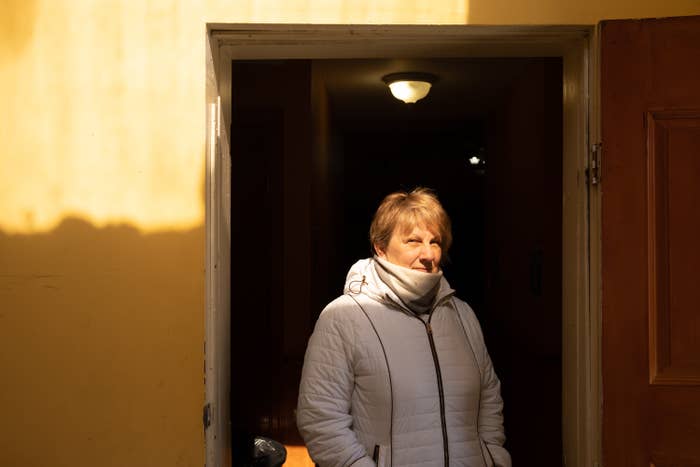
Being safe in the US, an ocean away from Ukraine as it fights Russian troops while suffering the loss of hundreds of lives and widespread devastation, has made Olshand feel like she’s betraying her country. What helps ease her feelings of powerlessness is finding small ways to help her homeland from nearby Brighton Beach, the Brooklyn neighborhood that many immigrants from Ukraine and other post-Soviet nations call home. Olshand recently started volunteering at a local church there, where she sorts and packs up supplies to be shipped to Ukraine. Over the past few weeks, the Guardian Angel Roman Catholic Church has been flooded with donations and volunteers. Dozens of stacked boxes inside the small building are filled with first aid kits, sleeping bags, diapers, phone chargers, and other essentials for Ukrainians in besieged cities where residents are struggling without food, water, and power.
Olshand dreams of the day she can return to Ukraine and take part in rebuilding her country. Until then, volunteering has helped her feel closer to the home she so deeply misses. She hopes her efforts make a difference, even a small one.
“Even if we can help one child, or one soldier … even this can be enough,” she said.
BuzzFeed News spoke to several people in Brighton Beach’s close-knit Ukrainian community who described how volunteering has been a lifeline at a time when they’re far away from their families, while being inundated with images of death and destruction and even getting air raid alerts on their phones. Many are finding hope and purpose by helping their country in small ways from a great distance.
One woman who volunteers at the church said keeping busy was a way to cope with the terror of what her mother back in Ukraine is facing. Another woman, who wished she were on the front lines fighting with her people, said that organizing supplies has given her a sense of purpose. The local priest, who has been spending sleepless nights assisting refugees fleeing Ukraine, is gratified by the generosity of strangers. And an 8-year-old boy who once refused to attend Ukrainian school because he said he was American is now handing out donation drive leaflets in the neighborhood with a Ukrainian flag draped over his shoulders.
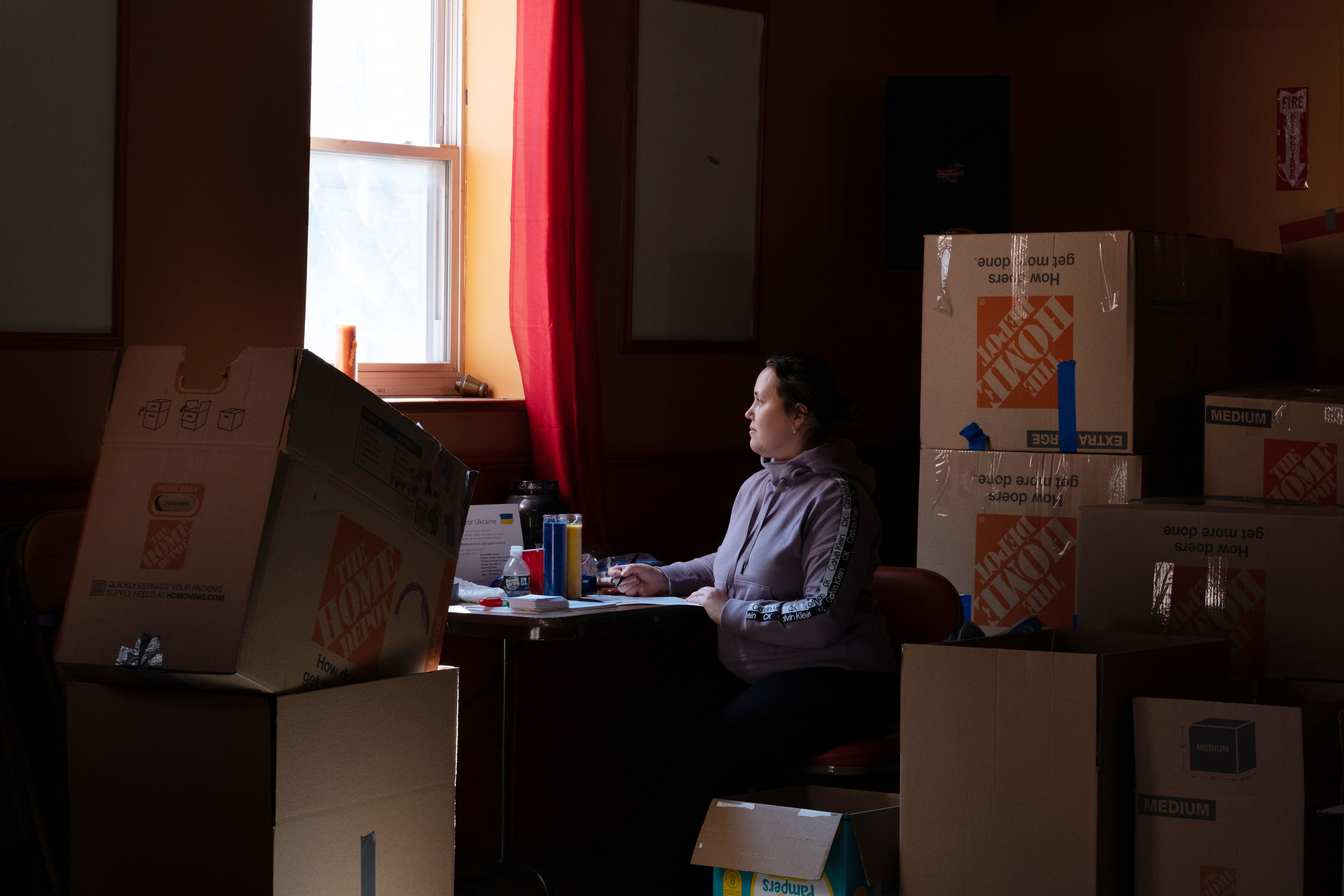
Iryna Makarov-Bondaruk, who helped organize the church’s donation drive, said volunteers — many of whom have family back in Ukraine — often open up to her about what they’re going through. “We don’t only collect the packages, we also work as psychologists in a way,” she said.
Her mother, who is still in Ukraine, worked as a psychologist for decades, and Makarov-Bondaruk said she feels like she’s emulating her during these emotional conversations. In helping others, Makarov-Bondaruk said she’s been able to channel her grief into meaningful action and cope with the fear of her loved ones’ safety in Ukraine.
“I know that my relatives in Ukraine, when the shooting starts, they tell their children that it’s simply fireworks going off,” Makarov-Bondaruk said. “My nieces are 12, so [their moms] give sedatives to them because they understand more [about what is happening].”
She has also been trying to insulate her 8-year-old son and 6-year-old daughter from the news, knowing how frightened they are for their loved ones who live there.
“My daughter, she’s super anxious about how [her] grandma is doing there. She starts crying, [saying], ‘I want to see Babusya,’” Makarov-Bondaruk said, using the Ukrainian word for “grandmother.”
But her children, too, have found strength in getting involved with the pro-Ukraine efforts in Brighton Beach, and seeing them embrace their heritage has been a source of hope, Makarov-Bondaruk said. Recently, when she got back from a volunteer shift late at night, she found her daughter asleep by a pile of greeting cards she’d been painting for children in Ukraine.
“Previously, my son didn’t really want to attend Ukrainian school, and he [would say things] like ‘I’m American, I don’t want to be going there,’” she said. “Today, he’s wearing the Ukrainian flag over his shoulders, and he’s started giving out [donation drive] leaflets on the street.”
For the community’s older residents, many of whom are immigrants from the former Soviet Union, the current crisis has resurfaced the decades-old trauma of life during World War II. Faina Markovich, an 85-year-old who emigrated from St. Petersburg in 1992, said it has brought her back to the most frightening days of her childhood.
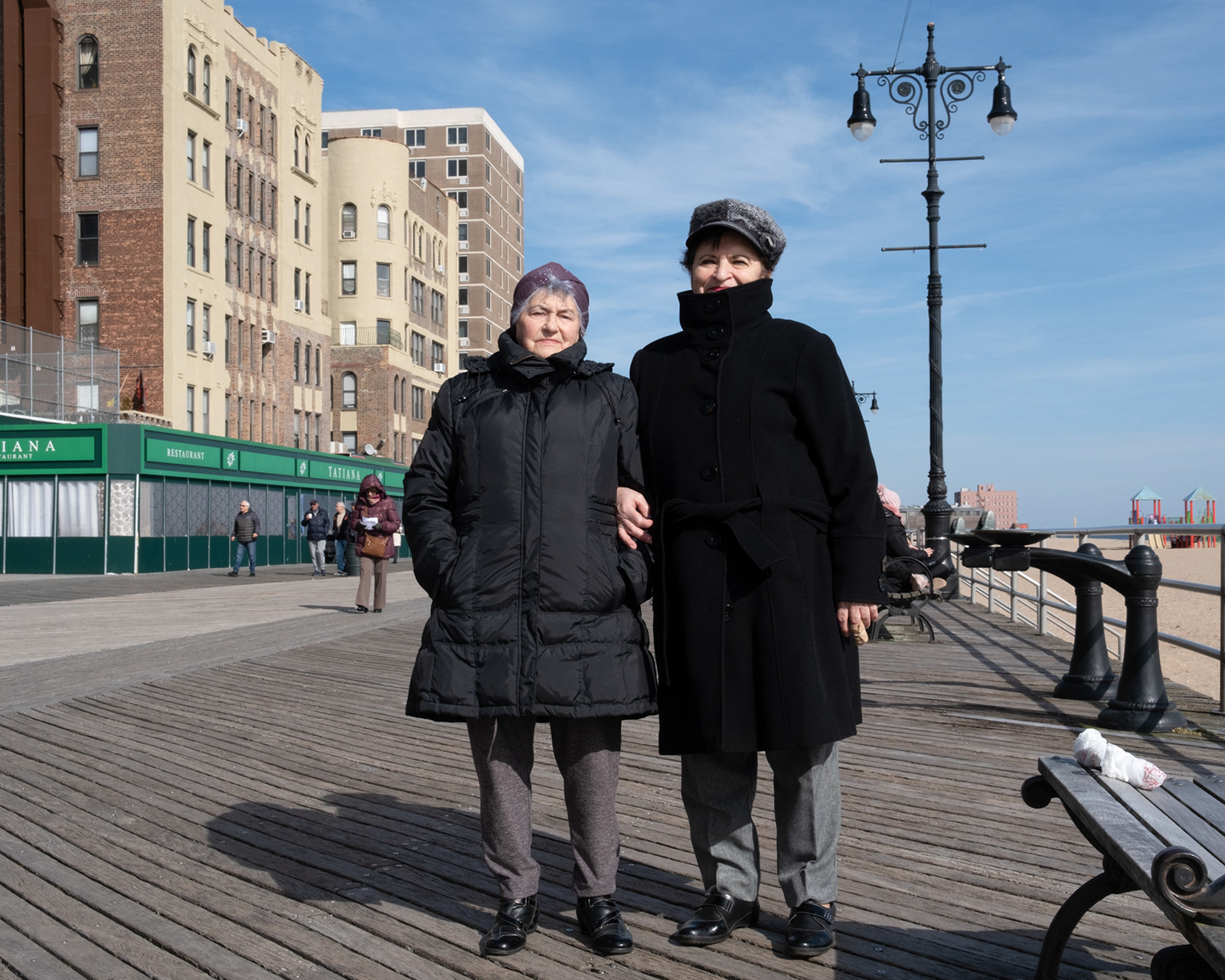
“We lived through the same thing in our lives,” Markovich told BuzzFeed News as she sat on a bench on the boardwalk with her friend, Keara Makarov, a 70-year-old who emigrated from Kyiv about 30 years ago. “When the Germans came, we had to run away from them. We were just kids back then — we were 5, 6 years old, and we had to escape. I lost my parents.”
Makarov said she recently attended a protest in Times Square where she found herself weeping for all the people who have died since the invasion began.
The two friends agreed that the events of the past few weeks have only brought them closer.
“One person is making the whole world suffer. It’s simply impossible to wrap one’s head around that,” Makarov added, referring to Russian President Vladimir Putin. “And Russian people also live there. … It’s not some other people, it’s his own people that he’s killing.”
Like many Russians across the world who have condemned Putin’s invasion, often at the risk of their freedom, those living in Brighton Beach have also expressed solidarity and offered support to their Ukrainian neighbors.
“I have a lot of Russian friends who live here, and … they bring a lot of donations here,” Makarov-Bondaruk, the donation drive organizer, said. “A lot of people simply call and say sorry; [they] apologize for what their country is doing.”
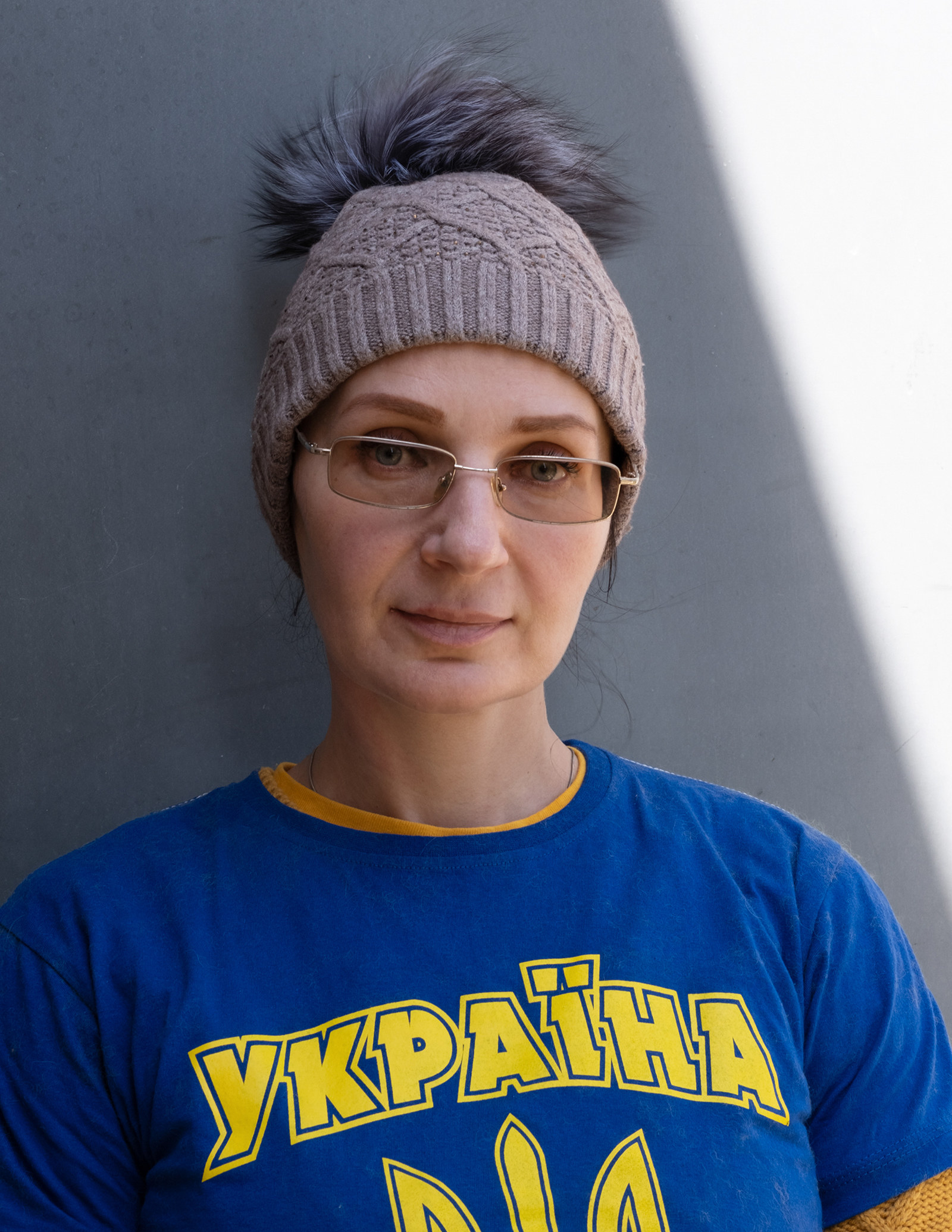
Working long days out of the local church, volunteers are taking on multiple roles to assist Ukrainians both in Brighton Beach and abroad. Inna Artemenko, 42, who has lived in Brighton Beach for four years, said she and her husband have been gathering information from relatives on the front lines and disseminating it throughout the community. They’ve also contributed their own money toward the donation drive, she said, to pay for the supplies as well as the high shipping costs. Luckily, the church has seen a generous outpouring of support from beyond the Ukrainian community, too.
“We have a lot of people who want to help Ukraine, and it’s not only Ukrainians,” Artemenko said. “It’s Indian people, Pakistani people. We have Africans, we have African Americans, we have Poles. So it’s a bunch of different nationalities that just hear Ukraine needs help and have come to help.”
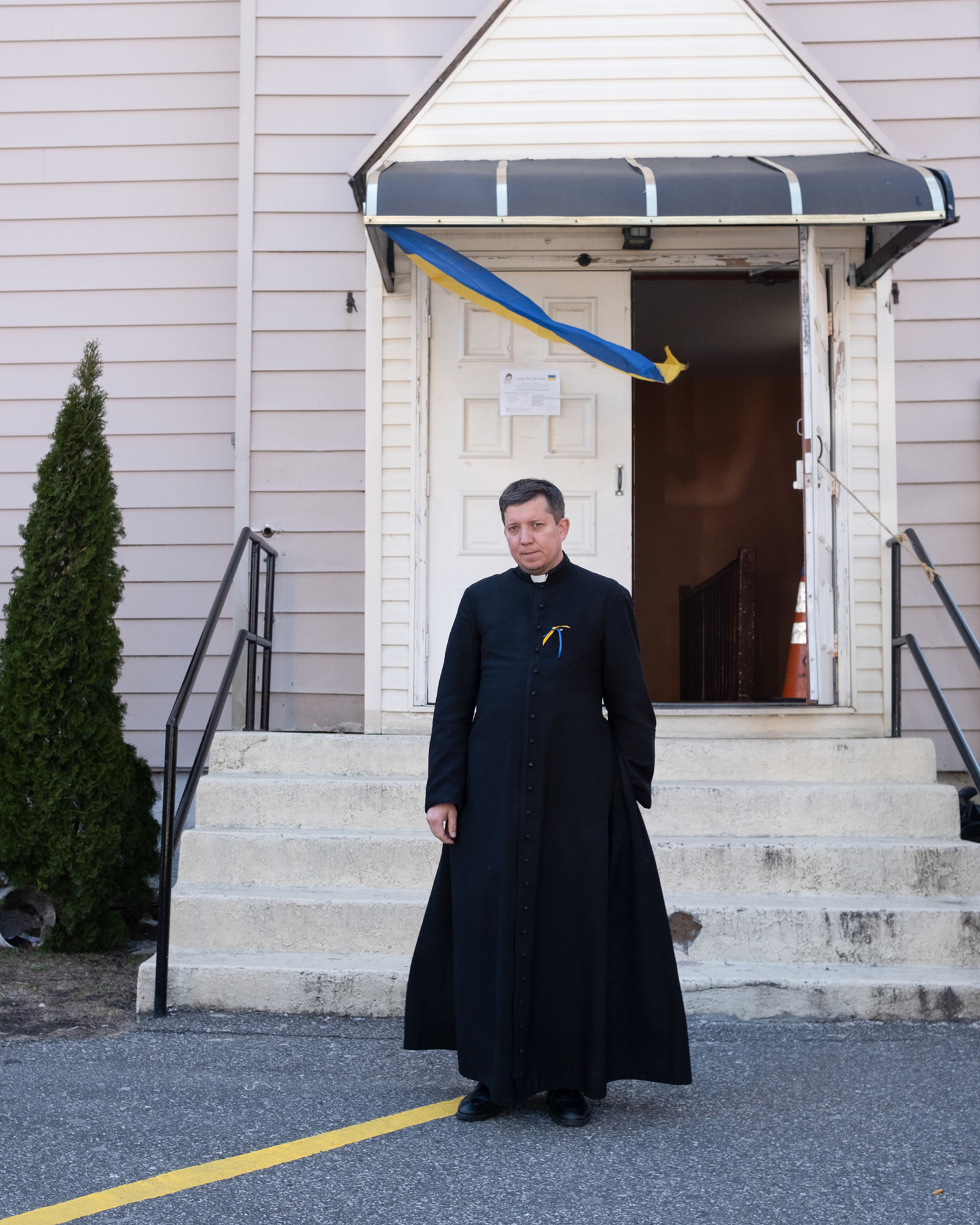
Apart from leading mass and offering spiritual guidance, the congregation’s priest, Father Sergiy Emanuel, has taken an active role in assisting people fleeing Ukraine. In the past few weeks, he has been arranging transportation to bring families across the border, often sleeping only two or three hours a night.
“Very often, people [ask], ‘How are you? How are you?’” Emanuel said. “It’s more important to help others than ask how I am. I say, ‘Watch the news, and you’ll know how I am.’”
Emanuel said he is heartened seeing the community rally in support, including people from a variety of religious backgrounds, and that he has been astounded by people’s generosity. “Just today, some pharmacy from New Jersey [brought a] whole bus of medical supplies, just for free,” he said.
But Artemenko, who wishes she could join her loved ones fighting on the front lines in Ukraine, said packing and sending donations from the Brighton Beach church will not be enough to save her country. What Ukraine really needs is international action, she said, including military aid and the approval of a no-fly zone, as Ukrainian President Volodymyr Zelensky pleaded for Wednesday in an address to Congress.
It’s a peculiar sort of homesickness, Artemenko said, being both terrified for Ukraine while missing it with a deep ache. But finding ways of supporting her people, even from such a distance, has given her a sense of purpose that cuts through the grief. She thinks of it as a sort of inner light, one she hopes can inspire more people — both in her community and around the world — to do whatever they can to get involved in the cause.
“Some kind of light appears in your soul, and this light helps you in moving forward,” Artemenko said. “But also this light draws the attention of people around you, and people really follow this light, this calling, this despair. They see it as a lighthouse and they just follow it.”


